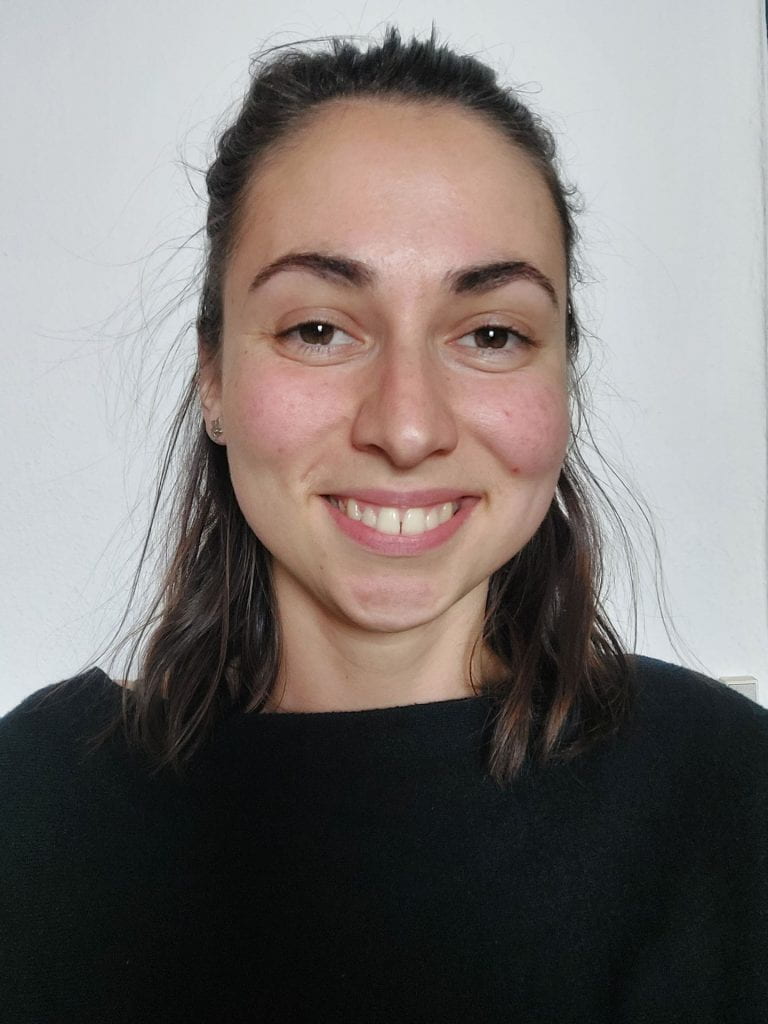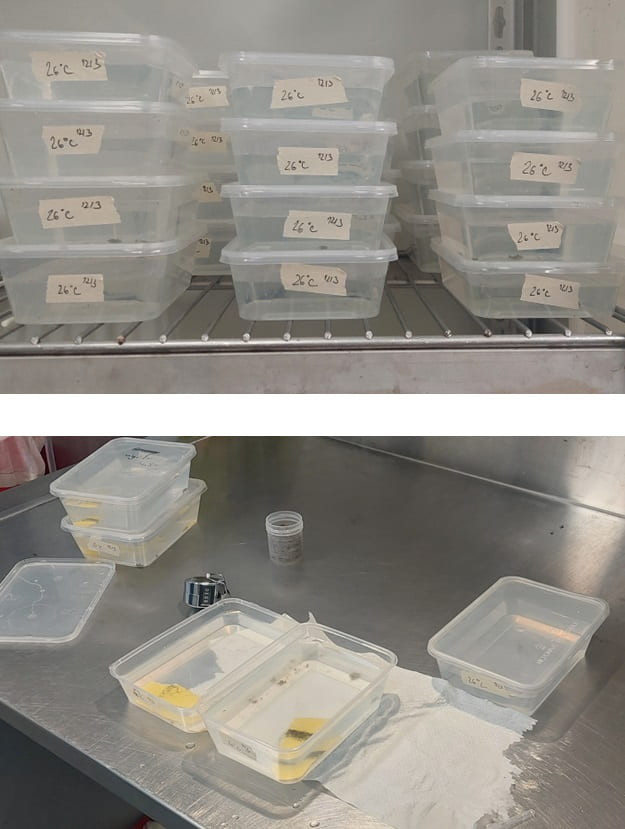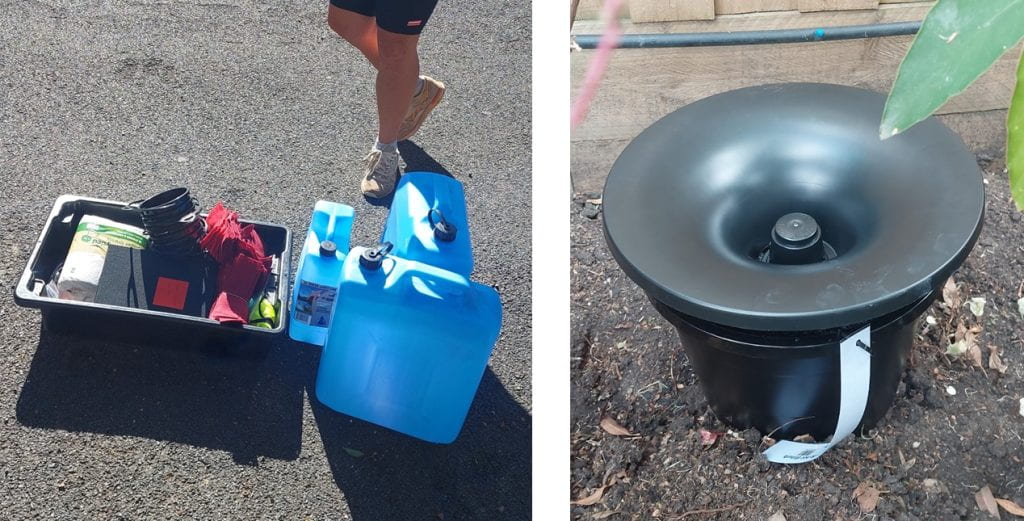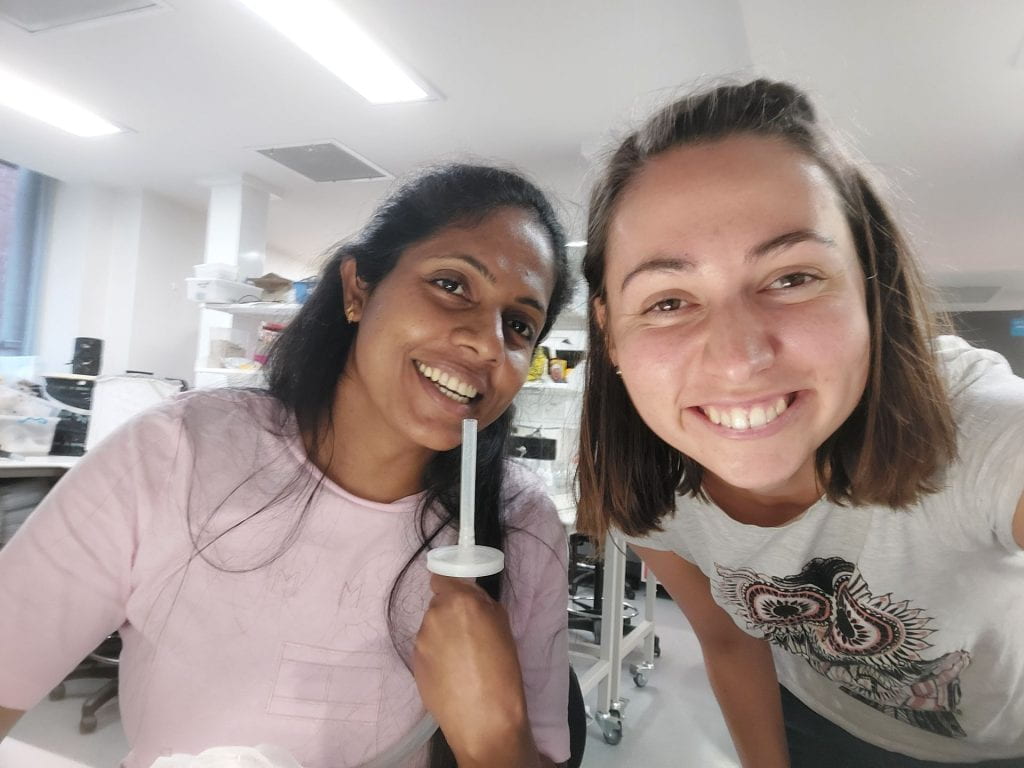
When your dream comes true…
By Miriama Pekľanská

As my stay comes to an end, I would like to share a few words about myself and how I fulfilled my dream of coming to Australia to complete my three-month PhD internship with the Pest & Environmental Adaptation Research Group (PEARG).
I am from a little village near the beautiful city of Košice in eastern Slovakia. Growing up in nature, I became captivated by biology and the mysteries it contained. Thus, I began to expand my understanding of biology in the Czech Republic, where I enrolled in a biology course at the University of South Bohemia in České Budějovice. This step piqued my big interest in science. As I have always been keen to explore new opportunities to broaden my knowledge and pursue my interests, I enrolled in the Erasmus+ programme, which allowed me to learn about additional scientific issues and find an area that interests me. During one of my summer internships at KU Leuven in Belgium, I developed a passion for insects, specifically mosquitoes. There I became fascinated by these small flying insects, and developed an ambition to learn about them more.

Košice, eastern Slovakia
Following my master’s degree, I decided to pursue further PhD studies in mosquito research at the University of South Bohemia. I began working at the Laboratory of Molecular Biology of Ticks and the Laboratory of Molecular Biology and Physiology of Mosquitoes in Biology Centre CAS in České Budějovice where I conducted research on the question of whether mosquitoes play a role in Lyme disease transmission.

Left: Laboratory of Molecular Biology of Ticks. Right: Laboratory of Molecular Biology & Physiology of Mosquitoes
Currently, I have had the wonderful opportunity to visit Australia for the first time and learn more about mosquitoes at the PEARG lab. During my stay, I was able to link mosquito research with nature and climate change, with an emphasis on mosquito fertility.
As climate change has also brought higher temperatures, it is necessary to study what effects it has on mosquitoes and their fecundity. Thus, the task of my research was to examine the thermal limits of mosquito fertility across generations. To do that, I reared larvae and pupae at various water temperatures to investigate impacts on the development of larvae, pupae, and on the fecundity of mosquito adults.

Sorting larvae into trays and rearing them at particular temperatures

Getting out to the field
I also participated in a field project led by recent PEARG PhD graduate Véronique Paris – We set up monitoring traps alongside a novel mosquito control system in the backyards of households in suburban Melbourne. This project aims to assess if this system can reduce the local population of Aedes notoscriptus mosquitoes, and if it can be part of future efforts to manage the transmission of Buruli ulcer.
I received excellent training from everyone in the lab. From the very warm welcome, I got a lot of assistance when I needed it, as well as research recommendations and fresh ideas for future studies. I would like to thank Prof. Ary Hoffmann for accepting me to do my internship in his lab. Special thanks go to Dr. Perran Ross, I could not have asked for a better supervisor for my PhD internship.

With my mosquito-colleague, PhD student Apeksha Lalani Warusawithana
Now, I return home with fresh knowledge to apply in future mosquito study, as well as excellent memories, new friendships, incredible energy from people, gorgeous colourful nature, fascinating creatures, and delicious food.
